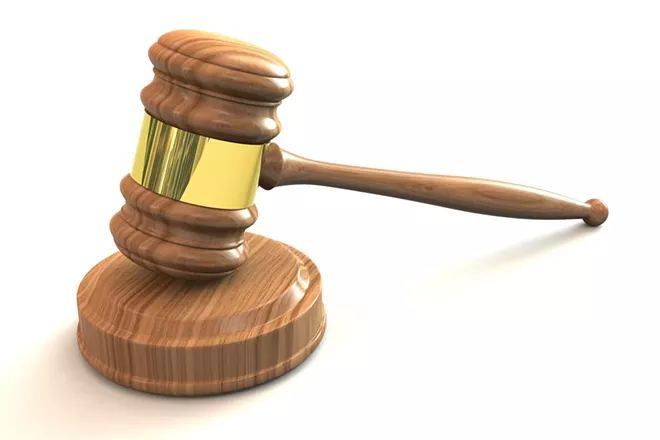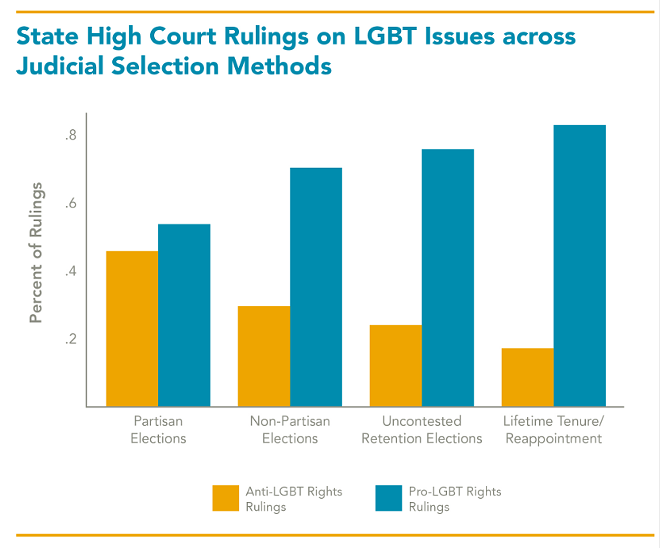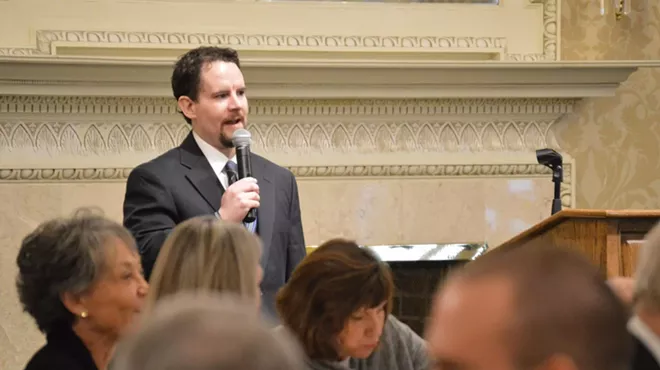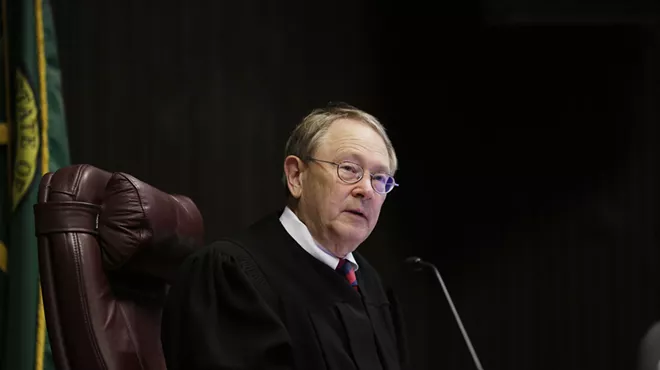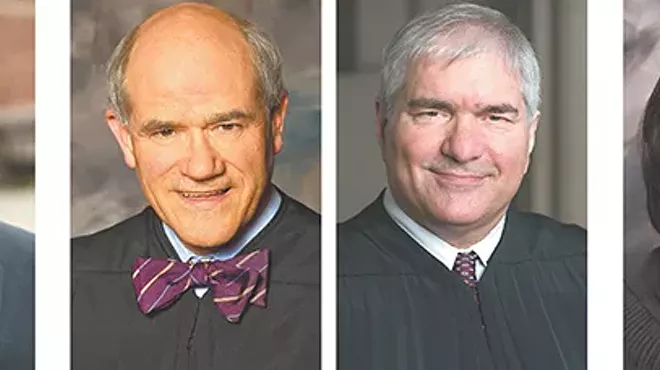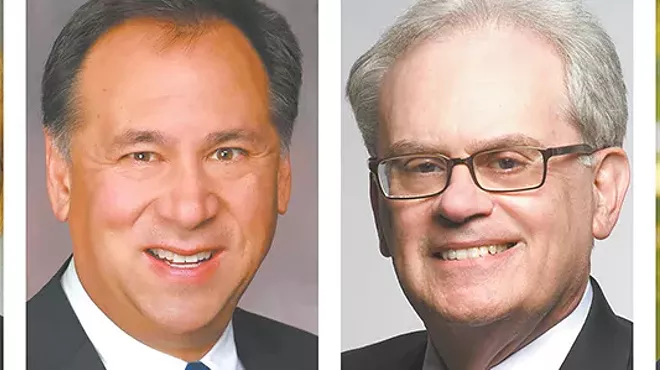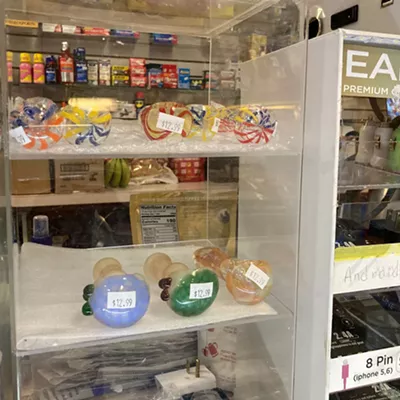Thursday, October 6, 2016
Should judges be elected by the public? Let's break it down
Judicial elections are gaining popularity, and for good reason. Consider the awesome individual power a judge wields with his or her decisions — guilt or innocence, prison or release, and in some cases life or death (though Washington state currently has a moratorium on the death penalty, prosecutors can still seek capital punishment as a sentence).
"The benefit to electing judges is giving the public more buy-in and respect for the justice system," says David Brody, a criminal justice professor at Washington State University who has studied judicial elections. "If people lose respect for the court, it's a major blow to the community."
Yet, given the issues surrounding judicial elections,
"Do they share the values that you want a judge to have?" Brody questions. "It's very difficult to get that information. People don't know what they're voting for."
Former U.S. Supreme Court Justice Sandra Day O'Connor played a major role in encouraging states to move away from elections and into a merit-based appointment system.
Justices on the U.S. Supreme Court are appointed by the president and approved by the Senate, for example, and electing judges is virtually unheard of in the rest of the world.
Last week, I wrote about the race for two seats on the Spokane County Superior Court bench. In this week's Inlander, I have another article on the six candidates running for three seats on the state Supreme Court.
Over the past two weeks, I've researched the pros and cons of judicial elections.
Some of the potential consequences made it into last week's article: Attorneys and judges, the two groups of people who work closest with judges facing re-election and in the best positions to inform the public, aren't willing to speak disparagingly of a judge — at least not publicly. And that makes sense. An attorney who badmouths a judge in the newspaper may have to appear in front of that judge down the road.
Also, some would argue that the "election" process is largely broken. All 12 of the Spokane County Superior Court seats are up for re-election this year. Only two have drawn challengers. In the previous two election cycles, all 12 judges ran unopposed, and without an opponent, judges are automatically retained. Statewide, 86 percent of Superior Court seats will be automatically retained in the general election this year.
Tim Fennessy, a civil attorney who is challenging Superior Court Judge Greg Sypolt, articulated another crack in the system.
"The practice has been that judges run for a four-year-term and then retire or resign [before it expires]," Fennessy told me. "In the last couple resignation and appointment processes, the resigning judge has taken a stance on who should replace them, and it's my understanding that the governor seriously considers who the exiting judge thinks ought to get appointed."
Indeed, eight of the 12 current judges who preside over felony-level criminal cases and civil lawsuits in Spokane County were initially appointed. Although some have faced
But there are other issues with electing judges:
• When you elect judges in the same way you elect politicians, they tend to act like politicians. Judges are expected to make decisions, at times unpopular ones, independent of special interests or the popular political climate. However, there is a growing body of research that suggests this isn't the case for elected judicial officers.
A report from the Brennan Center for Justice, a liberal think tank, analyzed empirical studies on judicial elections and found judges are generally more punitive toward defendants in criminal cases when facing re-election.
"In the 37 states that heard capital cases over the past 15 years, appointed judges reversed death sentences 26 percent of the time," the Brennan Center report concludes. "Judges facing retention elections reversed 15 percent of the time, and judges facing competitive elections reversed 11 percent of the time."
A 2010 study of Washington state judges found that sentences were about 10 percent longer near the end of a judge's term than at the beginning.
Social and racial minorities are often on the receiving end of these decisions.
Another study from Lambda Legal, a nonprofit legal organization that represents gay, bisexual and transgender people, found that judges facing re-election are generally less supportive of LGBT rights, especially those in partisan races. (Disclaimer: the study looked at 127 state Supreme Court decisions involving LGBT rights nationwide since 2003, which is a relatively small sample size. Also, the public attitude toward gay rights has changed dramatically in the last 13 years).
• Money plays a role. Since 2010, when the U.S. Supreme Court's landmark Citizens United decision opened the gates for unlimited political spending by corporations, money has poured into state court elections from special interest groups and political parties — nearly doubling from $12.8 million in 2007/08 to $24.1 million in the 2011/12 general election.
Indeed, a 2008 analysis of campaign contributions from pro-business groups, pro-labor groups, doctor groups, insurance companies and lawyer groups, found that those contributions increased the probability of judges ruling in their favor.
Similarly, a 2010 study of state Supreme Court decisions from 1995 to 1998 found that "elected judges are more likely to decide in favor of business interests as the amount of campaign contributions received from those interests increases.
• TV ads have increased in recent years. Some attack ads will label a judge as "soft on crime," citing specific decisions without appropriate context, which can be misleading.
A Brennan Center study found that "the more frequently television ads air during an election, the less likely state Supreme Court justices are, on average, to rule in favor of criminal defendants."
• Not every state elects judges. Selection methods range from partisan
Brody, the WSU criminal justice professor, says judicial elections can act as a barrier for potentially good judges who have no interest in running for office.
For Brody, Montana's judicial selection process offers the best of both worlds.
Judges in Montana are initially elected on a nonpartisan basis. If a judge retires or resigns mid-term, the governor appoints a replacement and, depending on when the vacancy occurs, the senate approves (or rejects) the selection. In Washington, there is no check on the governor's selection, though judges go through a vetting process.
Then, assuming the appointed judge wishes to remain on the bench, during the next election cycle, he or she will stand for re-election if challenged. If unchallenged, voters cast an up-or-down vote to retain the judge. All other state judges who run unopposed still appear on the ballot for a retention vote as well. In Washington, however, if judges run unopposed, their names do not appear on the ballot.
"It's important for people to make an effort to get information and make an informed decision," Brody says, adding: "In Spokane and Washington state, we've got excellent judges regardless of how they got there. It's one of the best judiciaries in the country, in my opinion."
For information on judges, you can read my coverage of the Superior Court and state Supreme Court races. Brody also suggests visiting votingforjudges.org and checking the Public Disclosure Commission website, which shows where campaign contributions are coming from.
TL/DR: Just watch John Oliver explain it:
Tags: judicial elections , judges , criminal justice , Spokane County Superior Court , Washington State Supreme Court , John Oliver , David Brody , News , Image , Video

